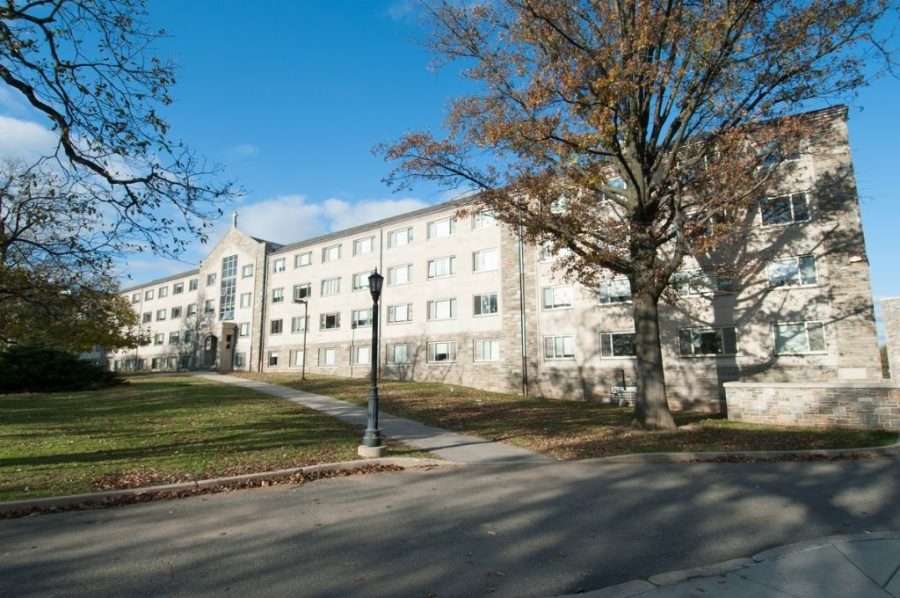Vandalism in Sheehan Hall and the Misuse of Collective Punishment
Courtesy of Villanova University
Vandalism was reported in Sheehan Hall on March 3rd.
March 10, 2021
Residents of Sheehan Hall, including myself, have been informed as of March 3 that multiple areas of the building have been vandalized. I personally find this appalling and believe the individual(s) responsible must be found and punished to the full extent of University policy and, if necessary, the law. Residents have also been informed by the Office of Residence Life that:
“If we are unable to identify the individual(s) responsible for these damages, the cost for repair will be assessed to the residents of the building.”
You read that right. If no culprit(s) are found, the cost of damage, which reportedly well exceeds $13,000, will be paid by students who have no involvement, or likely any knowledge of these actions. Sheehan residents should feel infuriated as I certainly am. This is nothing short of collective punishment: an unethical and illiberal practice.
The practice of collective punishment has a long and troubled history. Groups in power have utilized it as an indiscriminate way to instill conformity and discipline into entire communities. Collective punishment has been widely practiced by many nations, including the United States. While the exact circumstances and punishments often differ from what’s recently occurred in Sheehan Hall, the fundamental principle remains: equal punishment to both the guilty and innocent.
If you’re wondering how collective punishment is still a legal practice, it’s actually not. According to Article 5 of the American Convention on Human Rights, a binding piece of international law signed in 1969, “Punishment shall not be extended to any person other than the criminal” when employed by governments. Likewise, under the Article 33 of the 1949 Geneva Conventions, “No protected person may be punished for any offense he or she has not personally committed” in a wartime setting. Collective punishment is both a gross violation of international law and a punishable war crime. It is not a crime, however, when conducted by private corporations and entities within the United States. However, this does not make the practice any less just.
Collective punishment is also inherently illiberal. Individual rights and civil liberties are pillars of any fair, democratic and liberal institution. Collective punishment infringes upon these rights and liberties and thus has no place in any liberal arts university, especially Villanova, which must stand as a beacon for liberal values. I can’t help but feel that collectively punishing the residents of Sheehan Hall is anything but hypocritical.
Within its email, the University claims that “Within each building we aim to foster a community that embodies our three Augustinian values: Unites, Veritas, and Caritas,” and in turn “Acts of vandalism not only impact the aesthetic and daily function of our residence hall, it also impacts the greater community at large.”
The University fails to acknowledge the unfair and unjust nature of collective punishment. It is unjust when exercised by governments, it is unjust when exercised by corporations and it is unjust when exercised by private universities. Villanova’s emphasis of a “Community First” lifestyle should not and cannot come at the expense of its liberal principles. I urge the Office of Residence Life and the University as a whole to reconsider its decision. The only way in which we as a community can stand to unjust and unethical practices is by not practicing them ourselves.


